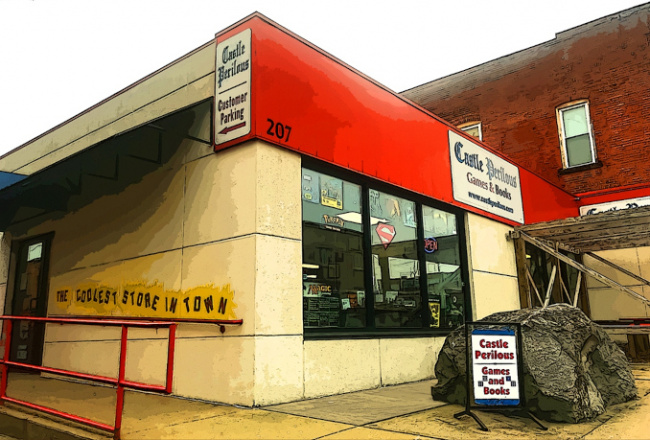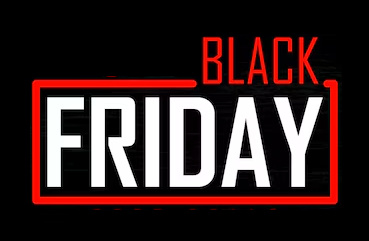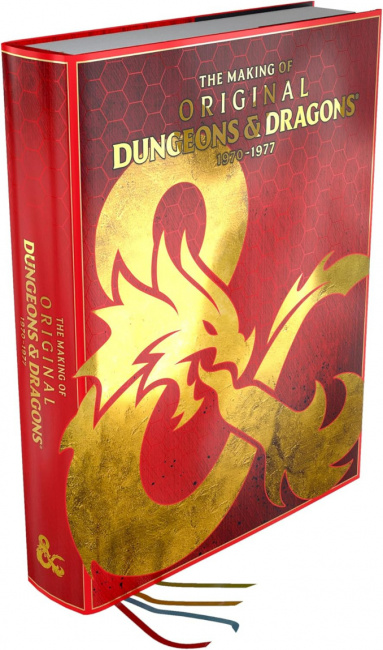Rolling for Initiative is a weekly column by Scott Thorne, PhD, owner of Castle Perilous Games & Books in Carbondale, Illinois and instructor in marketing at Southeast Missouri State University. This week, Thorne looks at initial reports on Black Friday sales in 2024, and continues to discuss the controversy revolving around The Making of Original Dungeons & Dragons: 1970-1977.
From what I have heard so far, Thanksgiving weekend sales, whether a FLGS decided to run a sale or otherwise take advantage of the hype surrounding both it and Small Business Saturday, or just took advantage of the additional foot traffic generated by the conditioned response to get out and shop this time of year, have generally been positive, with a number of stores saying they were up at least 10% over 2023. According to what I have heard in the news, retail sales going into Thanksgiving weekend were up a healthy 9.5% and the National Retail Federation projects sales up about 3% over 2023. I am hoping to see more of a 10% increase, and if sales this week are indicative of the rest of the year, I think we will.
It appears there is still controversy swirling around The Making of Original Dungeons & Dragons: 1970-1977 book (which actually published without much fanfare last summer), especially the introduction’s commentary on Dungeons & Dragons today vs. D&D then (see “Musk Ado about Dungeons and Dragons“). DaveCon, a convention in Bloomington, Minnesota with a focus on the early years of the RPG industry, issued a statement to the effect that while the con would still offer D&D 5E games and players of D&D 5E were welcome, it would no longer run sessions of Wizards of the Coast’s Dungeons & Dragons Adventure League until WotC meets several conditions including, “A formal written and verbal apology must be issued to the D&D community, acknowledging the contributions of the game’s creators and longtime supporters.” Every book published by WotC since D&D 3E has acknowledged Gary Gygax and Dave Arneson as co-creators of the game and the hundreds of people who have contributed to its evolution over the years, so I am not sure what the writers of this statement are looking for in the form of an apology.
I wonder how many of those who are upset about the perceived slight towards the creators, which was written in the introduction to The Making of Original Dungeons & Dragons: 1970-1977, realized that the commentary was by the author and not by the publisher. For all the flack WotC gets from the gaming community, and I have done it myself on a number of occasions (see “Chris Cocks—The Interview“), D&D would likely not be around without WotC.
In 1997, due to a number of bad business decisions (pumping out lots of product that did not sell, venturing into the book trade, getting blindsided by returnability, etc.), TSR was on the verge of bankruptcy. WotC, flush with Magic: The Gathering cash and a fondness for AD&D (the company’s first products were The Primal Order sourcebooks, designed to integrate high powered campaigns into AD&D and other fantasy RPG systems), bought TSR and its assets, running TSR as a separate entity before integrating it into WotC around the time the company released D&D 3E. At the time, WotC was the only company in the industry with enough cash on hand to purchase TSR and save D&D from whatever might have happened with a TSR bankruptcy.
Comments? Send them to castleperilousgames@gmail.com.
The opinions expressed in this column are solely those of the writer, and do not necessarily reflect the views of the editorial staff of ICv2.com.
Read more at this site



